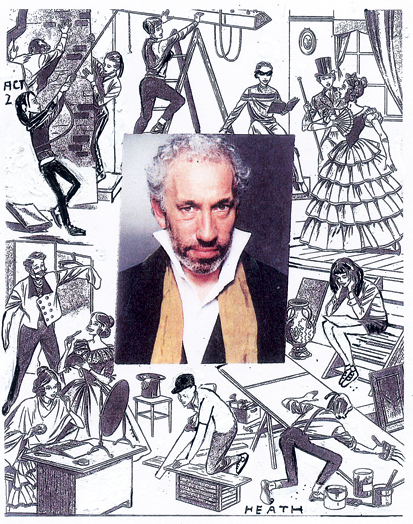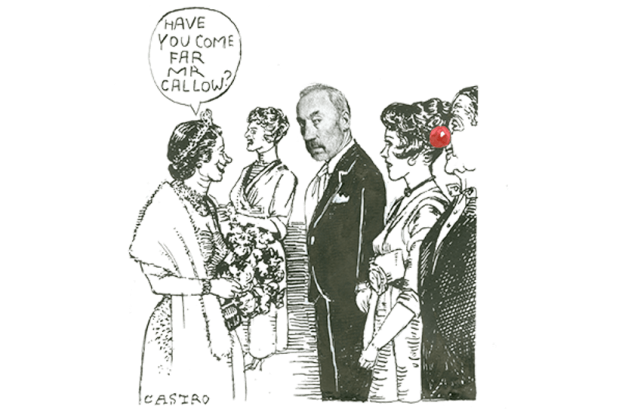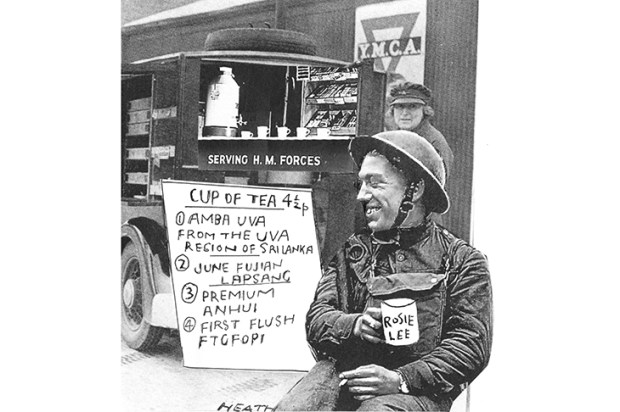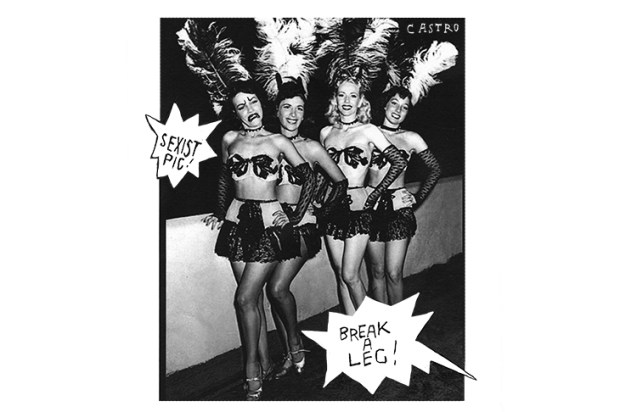It was one of those weeks. On Monday, I was in four countries: I woke up at crack of dawn in Austria, took my first plane in Germany, my second in Switzerland, and was back in Blighty by lunch. The next day, I travelled up to Scotland to play the sodomitical Duke of Sandringham in the new historical blockbuster Outlander. Then I had a day off, so went from Glasgow to visit chums in Balquhidder, in Stirling, a village of 150 people, which has its own loch, snow-covered mountains, burbling rills, Highland steer, Rob Roy’s grave, and a sublime restaurant. Back to London a couple of days later, then off to Dublin at the weekend for the Irish Times Theatre Awards. And then, Monday again, I was back in the dear old West End to open Jonathan Bate’s Being Shakespeare at the Harold Pinter Theatre. I suppose this is how secretaries of state feel, or those Victorian bigamists with two entirely separate families — not so much a series of different places as a series of different lives. Not ‘where am I?’ but ‘who am I?’
The who-am-I factor is particularly strong at awards ceremonies. I was nominated for my performance in a one-man play newly commissioned for me by the Lyric in Belfast — the best new theatre, incidentally, I have ever seen, brilliantly conceived, designed and built on the banks of the Lagan. The play was about Jesus, and I wanted to do it in Northern Ireland, where God is still news. Matthew Hurt produced an extraordinary text, ingenious and passionate, in which I played 12 characters (including Mary, Judas, Pontius Pilate and the woman Christ cured from bleeding), which created a prismatic portrait of Jesus himself, seen from many angles. It created quite a stir and the Irish Times judges nominated it one of the four best new plays in Ireland of last year. So I pootled off to Dublin (any excuse will do) and sat in the Royal Hospital Kilmainham, clad in red theatrical swagging for the event.
When it comes to gongs, you have to school yourself to absolute indifference to the outcome, while being prepared at a moment’s notice to be the happiest person on earth. It was all over in a second. I had lost, and as I listened to the triumphant acceptance speech of the winner (‘the best actor in Ireland’, the compère shouted, as he bounded onto the platform to receive his statuette) I found myself adopting that strange rigid smirk which one has most recently seen on the faces of Rebekah Brooks as she walks to court and Chris Smith as he endures a barracking. I think it’s supposed to be an ironic smile at the vagaries of fortune, but it comes out as smug and arch. In the case of awards, it feels as if one has nominated oneself, stood up and said ‘I’m the best actor’ and the room had howled back, ‘Oh no you’re not.’ Not so much ‘Who am I?’ as ‘Who do you think you are?’
Being Shakespeare lasts just under two hours including an interval. And there’s just me in it. I play 34 of Shakespeare’s choicest characters and try to tease out a sense of who he might have been. I last performed it two years ago. Unlike opera singers, who seem to carry around all the parts they’ve ever sung in their heads for ever, actors mostly wipe each script out of their heads the moment they’ve finished playing them. I’ve just come from doing two films back to back. Learning a film script is harder than learning a play because there is no rehearsal, no gently allowing it to sink into your brain. You turn up on the set dead letter perfect and, for the most part, just get on and do it.
But then, while keeping a movie script in my head, I had to re-learn Being Shakespeare at very short notice. There was a sudden unexpected gap in the theatre’s schedule, could we fill it? You bet we could; the cherry-pickers, as Orson Welles memorably remarked, go where the cherries are. It took me two days to get the script, all two hours of it, up to speed again. I wasn’t surprised, because I’ve been in this position before, but I remain astonished by the workings of the human brain. I don’t have a particularly good memory, but I have a method, which essentially confirms the great Irish actor Micheál Mac Liammóir’s definitive answer to the eternal punter’s question ‘How do you remember the lines?’ ‘By forgetting everything else,’ said Micheál. The brain, I suppose, is like a computer: you create a new file in your brain, a blank file, and then, line by line, fill it with the text. When you’ve finished the job, the file disappears into the bowels of the machine, until it’s called up again. This is both incomprehensible and a great relief. It’s a sort of routine miracle, on which actors’ very existences depend.
Got something to add? Join the discussion and comment below.
Get 10 issues for just $10
Subscribe to The Spectator Australia today for the next 10 magazine issues, plus full online access, for just $10.
Being Shakespeare is at the Harold Pinter Theatre until 15 March. Call 0844 8717622 or see beingshakespeare.com
You might disagree with half of it, but you’ll enjoy reading all of it. Try your first month for free, then just $2 a week for the remainder of your first year.














Comments
Don't miss out
Join the conversation with other Spectator Australia readers. Subscribe to leave a comment.
SUBSCRIBEAlready a subscriber? Log in